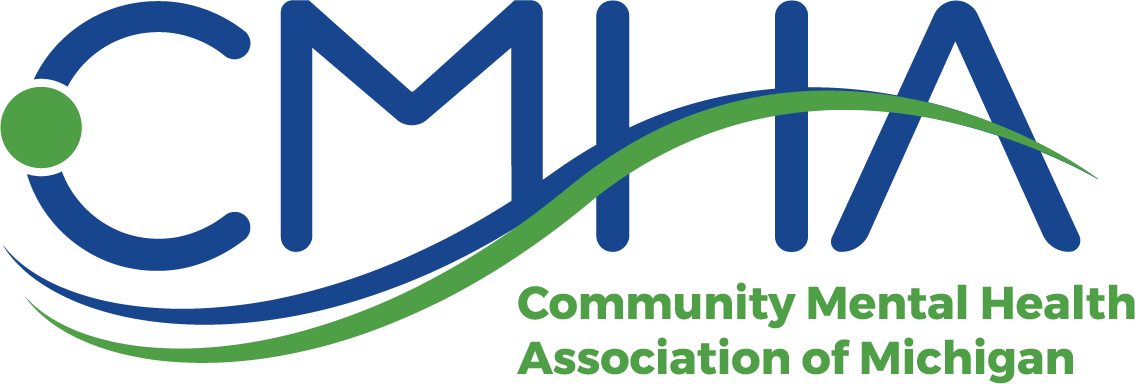Momentum Center for Social Engagement
By Barbara Lee VanHorssen, Founder & Experi-Mentor (Executive Director) of the Momentum Center
The Momentum Center is a grassroots movement to create a stigma-free community. Four years ago, in partnership with Community Mental Health of Ottawa County and with funds from the Ottawa County Mental Health Millage, we opened the Momentum Center for Social Engagement, a social and recreational program for people with mental illness, addictions, disabilities, and everyday struggles. It costs just $1 a year to join, and no clinical diagnosis or referral is required.
The Momentum Center for Social Engagement fills an important gap in the continuum of care between the person and clinical services – in both directions.
Because anyone can join at any time, the Momentum Center is a place for early intervention. Members are regularly referred for clinical and therapeutic care. We also receive referrals from therapists who want their patients to follow through with their behavioral recommendations. You can take a step inside the Momentum Center here: https://youtu.be/lIacFCwAQJw?si=MxgYo4arWBqTuAmR
You will be familiar with Tammy’s story. She was seeing her therapist once a month. She was always given the same instructions: take your medication every day, eat right, get some exercise, and socialize with other people. Oh, and come back next month.
Tammy’s depression grew worse over time because she rarely did any of the things she had been instructed to do. She didn’t know how to fulfill the behavioral part of her prescription. But when she found the Momentum Center, she signed up for yoga. She took a class on nutritious cooking. She found a community that was friendly and accepting. And because she found community, she started paying attention to taking her medications daily, just as prescribed.
Which leads to the all-important question of impact. What difference are we making? It turns out the impact is significant. We are normalizing important conversations about mental health and wellbeing while creating an ‘empathy first’ community. We are giving people purpose, hope, and meaning. In some cases, we are literally saving lives.
Importantly, the research backs up that conclusion. Members are experiencing statistically significant decreases in depression, anxiety, and loneliness and increases in social connectedness. Details of the study can be found in the ARNOVA paper we presented at their annual conference.
To understand why it works, we conducted qualitative research through observation, interviews and focus groups. We identified Five Key Techniques that intertwine and are responsible for member improvements. We also recognize the keys that have helped us thrive as an organization.
First, we are an organic organization. We didn’t start with any preconceived outcomes in mind which allowed us to think outside of the box from the beginning. We are flexible, adaptable, and agile. This gave us an edge when COVID hit and we were able to pivot to live streaming activities, setting up phone buddies, delivering care kits and generally helping people to continue knowing they were part of a community even when we couldn’t gather together physically.
Second, we are relational and collaborative. Almost as soon as we were founded, we convened the Mental Illness Task Force, bringing all the right people to the table to talk about how we could work together to create better outcomes. It is through partnerships that we continue to identify innovative opportunities for creating a healthier community.
Third, we knew from the beginning that we had to be social entrepreneurs. We knew that we needed to create our own income stream so that our ability to serve would not be at the mercy of other people’s charitable impulses. To that end, we operate the Momentum Café and Just Goods Gifts, a fair trade and social cause store. Because the Momentum Café is open to the public, it also serves as an important place of social integration for members.
Finally, we are focused on outcomes and impact. We have added resiliency measures to our data collection – believing resiliency will be a more reliable measure of our effectiveness over time. And we are embarking on new research with our partners, including Michigan State University, Community Mental Health, North Ottawa Community Health System and Pine Rest to do comparative analysis and demonstrate even more clearly the efficacy of the Momentum Center model.
I hope you are interested in learning more. We want to share this model because it fills a space on the continuum of care and those needs will only grow as we all deal with the short and long-term effects of COVID-19. We welcome conversations about how we might work together to establish new Momentum Centers or bring our experiences to help inform the work of your community.
It’s going to take some time to create a truly stigma-free community, but if we all work together, we will keep gaining Momentum!
Namaste
